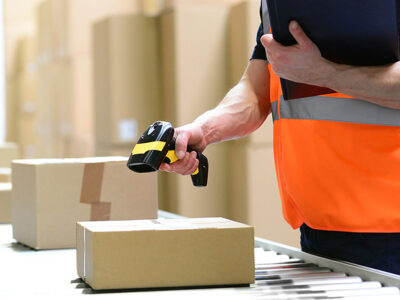
Activities in international trade
Imports and exports are the basic processes of international trade and transport relations between globally operating companies. The most widespread way of transporting goods in the global context is by sea freight. Standardized containers are usually used for this, which are loaded and unloaded at the major ports. There are many exciting jobs in logistics in this international environment.
Find the ideal import job here!

The importance of imports for the Federal Republic of Germany
If you look at the German trade balance – i.e. the foreign trade balance that shows the difference between exports and imports – it is noticeable that Germany has had an export surplus for decades. This repeatedly leads to international discussions because economic imbalances and negative effects are feared either for individual international trading partners or for the European economy. In these discussions, however, little consideration is given to the fact that Germany, as a country poor in raw materials, is also dependent on imports. This applies in particular to the energy sector.
Sea freight as the basis of international trade
Sea freight plays an important role in the global import and export business. Goods are transported on a ship from one seaport to another in bulk, general cargo, liquid cargo or in containers. The international shipping routes, including the classic bottlenecks such as the Panama Canal or the Suez Canal, are usually used for this. The largest container ports in Central Europe are Antwerp, Rotterdam and Hamburg. Although this sea freight transport takes more time than sending by air freight, the costs are usually much lower in comparison. Air freight transport is not worthwhile, especially for large delivery quantities with small profit margins.
For consumer goods in the private customer sector and in transport between companies, transport by container ship is usually the most cost-effective option. Particularly bulky and large deliveries of industrial mass products (e.g. mineral or heating oil as well as bulk goods such as gravel and coal) can be conveniently transported by sea freight. Heavy and large machines are also among the goods that reach their destination by sea.
When importing goods, the first step is to organize the transport of goods to the port from which the ship will depart. In the sea freight sector, many shippers work together with freight forwarders who take over the organization of the import or export. When packing the products, it is important to ensure that they comply with the import regulations of the destination country. The commissioned forwarding agent then also receives the dimensions of the products to be shipped as well as all the necessary shipping documents. Customs declaration is particularly important to avoid complications and delays during the process and especially upon arrival in the destination country. After all, there are various taxes on import. In addition to customs duties, these are import sales tax, excise duties or special customs duties, e.g. B. for agricultural products.
Goods import services
When importing goods by sea freight or air freight, goods or products can be treated differently for customs purposes. This includes e.g. the fiscal clearance. With this fiscal clearance, deliveries from third countries can be delivered to the goods recipient in the EU untaxed but duty paid. The import sales tax is then only due in the receiving country. EU-based companies that do not have a German branch can be supported by registered German fiscal representatives in handling their import processes. These fiscal representatives are special service companies that, depending on their size, offer a number of other services or support with their expertise. This includes, among other things, phytosanitary clearance, which is intended to prevent the introduction and spread of harmful organisms. Another issue can be veterinary clearance, since all animal products are subject to controls at the EU’s external borders. A change of depositary can also be offered. Here the goods are accepted under customs law until the goods have been transported to the recipient or released for free circulation.
No proper import without customs officers
Both with the importers and with the service providers such as e.g. the forwarding agents, the customs officers play a central role. In this role you don´t just check documents and statistical reports, but you also have to observe import regulations, such as e.g. the provisions
- Quota Goods
- Export Licenses
- Washington Convention on International Trade in Endangered Species
- processing traffic
- Sample shipment
- Carnet Clearance
Other employees who are responsible for the entire order processing also work with them in the company, regardless of whether the imports are carried out by sea freight or air freight. Dispatchers who take care of container planning are also important for both types of transport, so that the packaging and transport of machines, products and other goods to the port of departure can be planned and scheduled.

